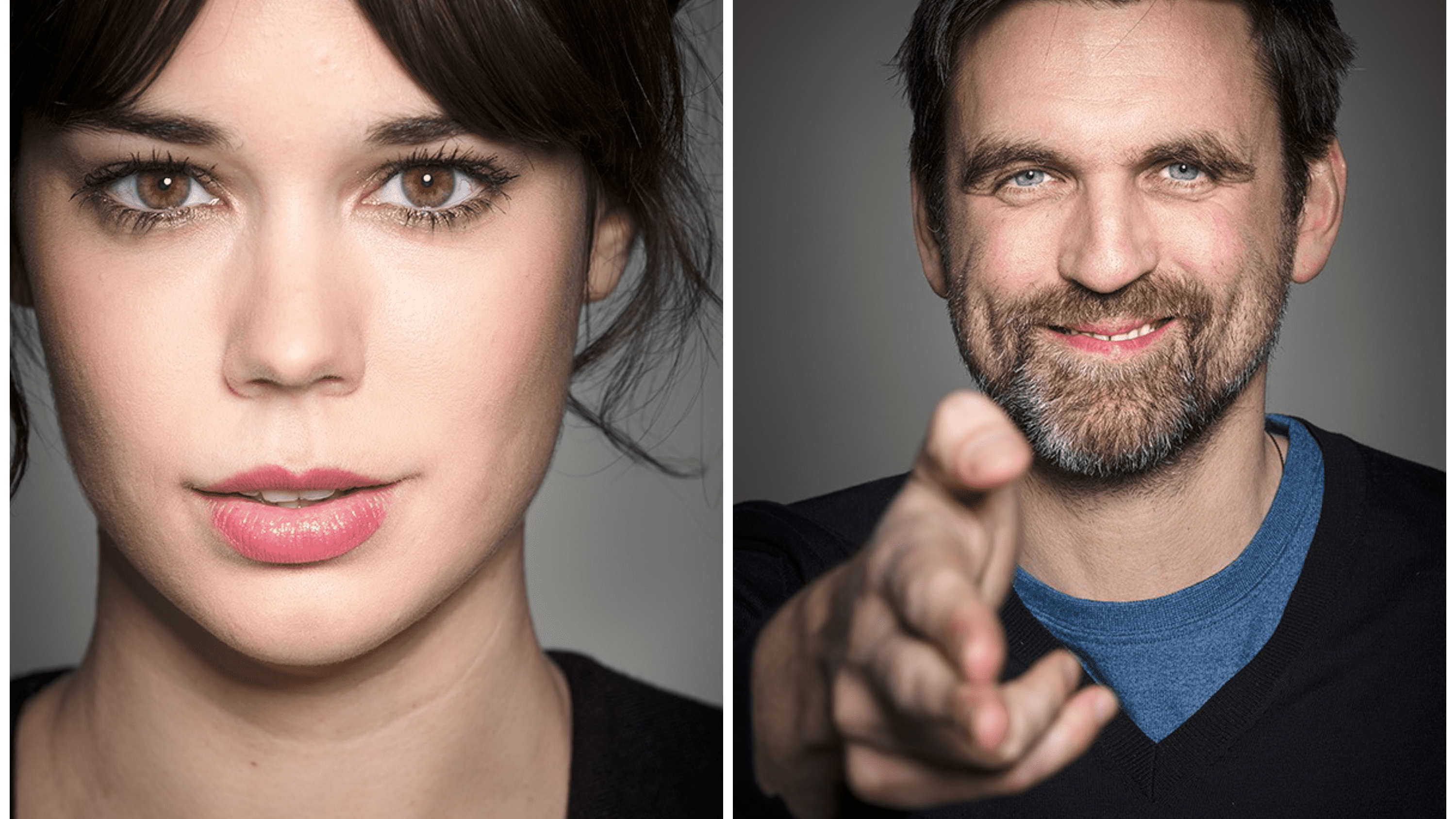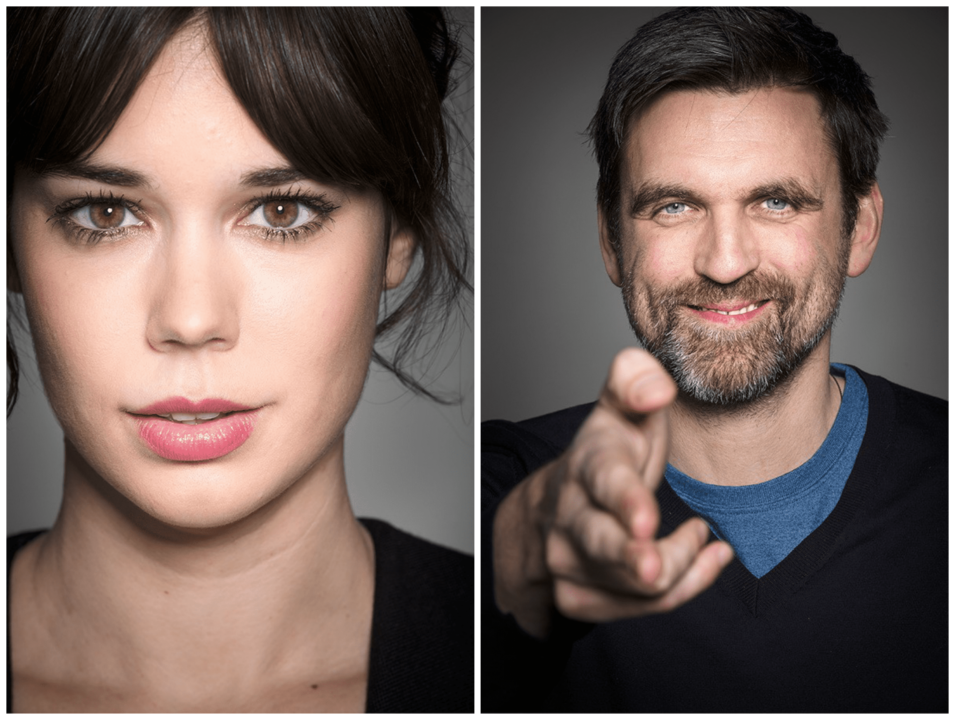One City. One Night. One Take. This is the premise of the latest film to garner Oscar buzz–Victoria, a groundbreaking crime drama about one young woman’s late night Berlin adventure with four strangers. We chat exclusively with German-born Sebastian Schipper, whose previous acting credits include Run Lola Run and The English Patient, and the entrancing Laia Costa, who won Best Actress for her role as the title character at the German Film Awards. The interview, or shall I say, conversation, is not only lively but extremely insightful. We talk about Schipper’s “punk rock” attitude, disregarding the film industry’s stereotype of creating “precious ideas” and how rehearsal is “bullshit.” We begin:
I saw Victoria at LA Film Fest and went in completely blind, other than knowing it was shot in one take.
Sebastian Schipper: That’s great, that’s always the best. When the guys who did publicity for Victoria at the Berlin Film Festival popped in the DVD, they told me they didn’t know anything about it. They were like, ‘Oh this is just a walking, talking film before sunrise.. a little gritty, darker’ and then they were like, ‘Ohhh!’ Haha! I’m glad, I wish I could give this kind of experience to everybody who watches the film.
In marketing the film, how do you find the line between selling the incredible work it is but not giving away the experience?
Sebastian Schipper: You can’t control it. People are going to read what they’re going to read and know what they’re going to know. The one thing I know is I want them to see the film because I believe whatever they’re expecting is going to be a little different. Maybe it’ll be hugely different actually. Even if you know the two big plot points, I’m pretty sure you’re going to find out that might be the least important thing about this film.
What was so incredible for me is that for the first hour or so, you’re getting to know these characters. Getting so much time to develop the characters before tension starts to rise, you feel like one of them in a way.
Sebastian Schipper: Yeah!

How did you make this film- specifically, how did you plan out the film’s beats and blocking before filming?
Laia Costa: We spent a month in every location. It was a very creative process because there was no script per se. I really loved Sebastian’s rules, you cannot repeat any sentence or action, and that gave us a lot of power to discover our characters and the situations and make the story richer every time. Then we did it in three one takes. By then we knew our characters’ backgrounds and roles. And then we did it in the one take. My favorite take was the second one actually. One night Frederick Lau and I were very drunk and we were like, “Our best take was the second! We don’t like the third one!’ But then we saw the third one and it was amazing too. I am really happy with the three of them.
Sebastian Schipper: I don’t believe in rehearsing with actors on a film. We would only really spend one day talking about a scene. What’s Laia going to do one month before shooting in some rehearsal space? It’s total bullshit. I was an actor, and as an actor, deep down you’re like I gotta do this for the director but for me, I’m going to do it the day it is going to happen.
There are shots that are deliberate, my favorite of which happens in the hotel. I think that’s why the one take works so well is because within the one take are these types of shots.
Sebastian Schipper: That shot was a decision. Here is one thing that I think is very characteristic to this film- I wanted to get away from the precious ideas and I think sometimes making movies is too much about the precious ideas, like the “great line” or the “great shot”. I love great lines and I love great shots but sometimes when I watch a film, I feel like ‘Oh, this is a great idea’ and it takes me out of the film. That’s one thing. I don’t want ideas, I want a great fucking film. I think we have a culture now, the smartphone culture, where everybody creates something small every day and shares it with everybody. We share pictures, quotes, this is my food today… haha. I feel like this culture is jumping into the making of movies; like you have a hundred ideas and that’s your movie. I think it’s the other way around, I think you have to tap into something tremendous and from that point stuff is going to come. There are great lines and images in this film, but they all spring from some deep, slow, cold undercurrent.
I said to my cinematographer Sturla [Brandth Grøvlen], ‘You don’t know anything, you’re a war photographer with your camera with this girl in this club, and you follow her. You just hang on.’
I think we watch films with our nervous system, with our heart and brain. You feel a film. So, the most important thing is that you are enabled to feel it. I said to my cinematographer Sturla [Brandth Grøvlen], ‘You don’t know anything, you’re a war photographer with your camera with this girl in this club, and you follow her. You just hang on. Please don’t anticipate what’s happening next because if you know, the audience can tell and that would inform their spine that this was make believe.’ Of course you know up here (points to head) that this is a movie, but the important thing is that your nervous system doesn’t know, and that enables you to get on the trip.

I like the war photographer comparison, it’s like being a documentarian being ready for the action.
Sebastian Schipper: That’s actually something I liked about Sturla, he shot documentaries before. He’s young and has to carry around the camera for 2+ hours and he’s a great artist.
Laia Costa: Yeah, he’s amazing.
What other crew members were following the action during filming?
Laia Costa: For me, no one! I couldn’t see anyone, but was later told there were people on the roof, and I didn’t know that.
Sebastian Schipper: Sometimes the sound guys did boom the film and there was a point when I wanted to forbid it.
It’s unusual for American audiences to see a foreign film in English.
Sebastian Schipper: Berlin has become the place for a lot of young people in their twenties to go to. People from New York are in Berlin, same with people from Austraila and Spain.
Laia Costa: Everyone talks in English. I was there for three months and I was talking to everyone in English. I have friends who have been working in Berlin for five years and they don’t speak German at all.

What has it been like getting Victoria out to audiences?
Laia Costa: It’s a bit tiring doing all of this promotion. When the journalist is as handsome as you, it’s fine, haha.
Sebastian Schipper: If it’s a conversation, it’s great. It makes all the difference in the world. With the making of Victoria, I tried to get out of the box of how you’re supposed to do things. Sometimes now while promoting it, I feel like a student again. I would rather just have the film be the film. I’ve done over 200 interviews and if it’s a conversation [rather than Q & A], it’s great. Sometimes it’s like you have to answer for what you did, and what we did was punk rock. One part of me wants to show up [to interviews] totally drunk and give the finger all the time..haha. Not that that’s the spirit of the film or how we feel about it, it’s just trying to get away from all the [questions].
H. Nelson Tracey
Nelson is a film director and editor from Denver based in Los Angeles. In addition to writing for Cinemacy, he has worked on multiple high profile documentaries and curates the YouTube channel "Hint of Film." You can check out more of his work at his website, hnelsontracey.com


